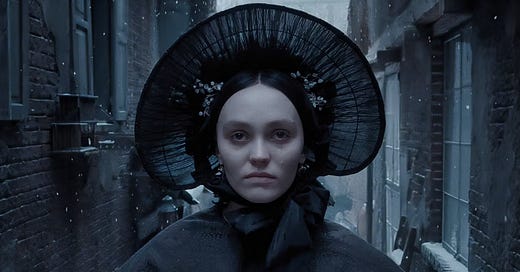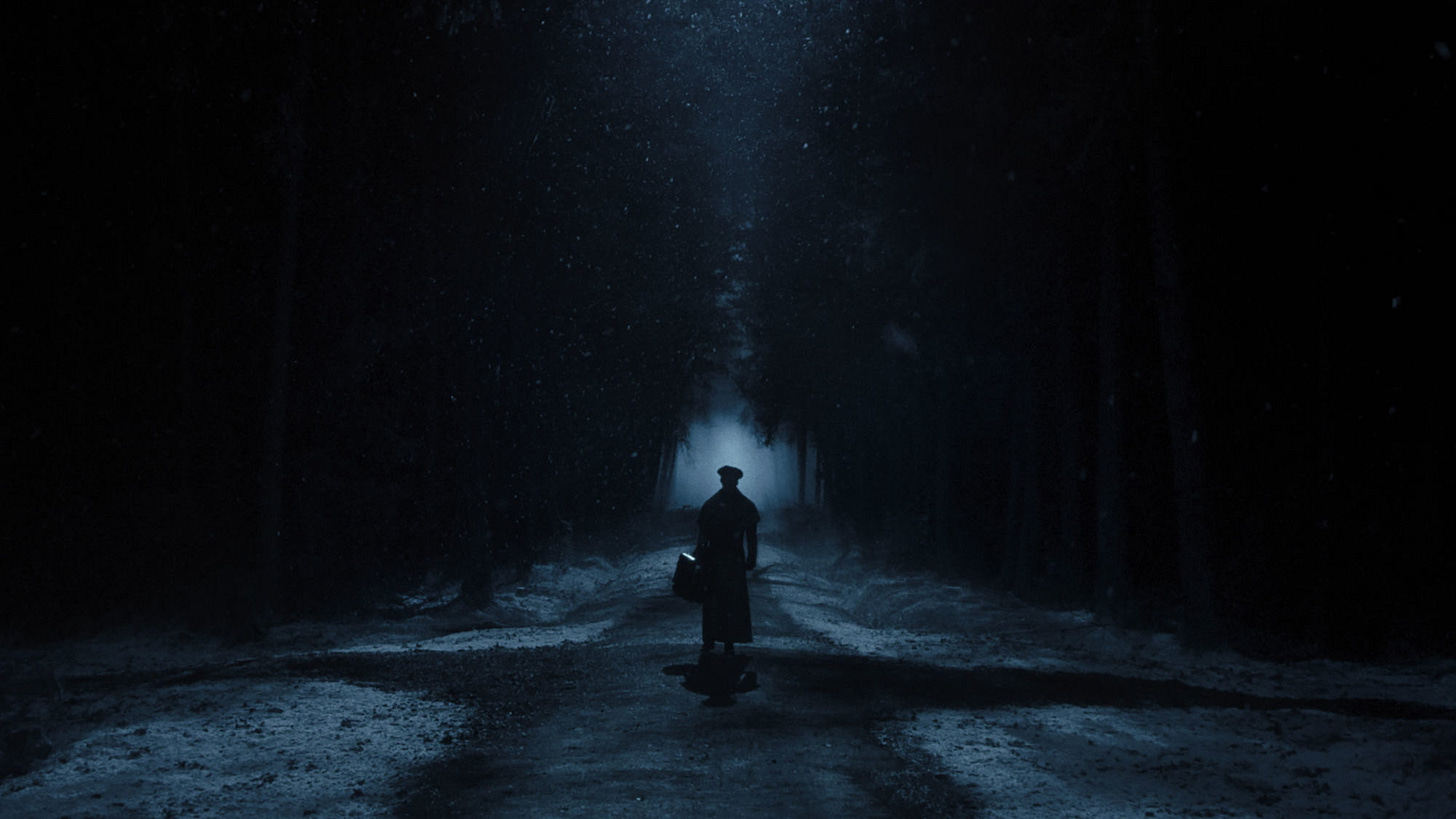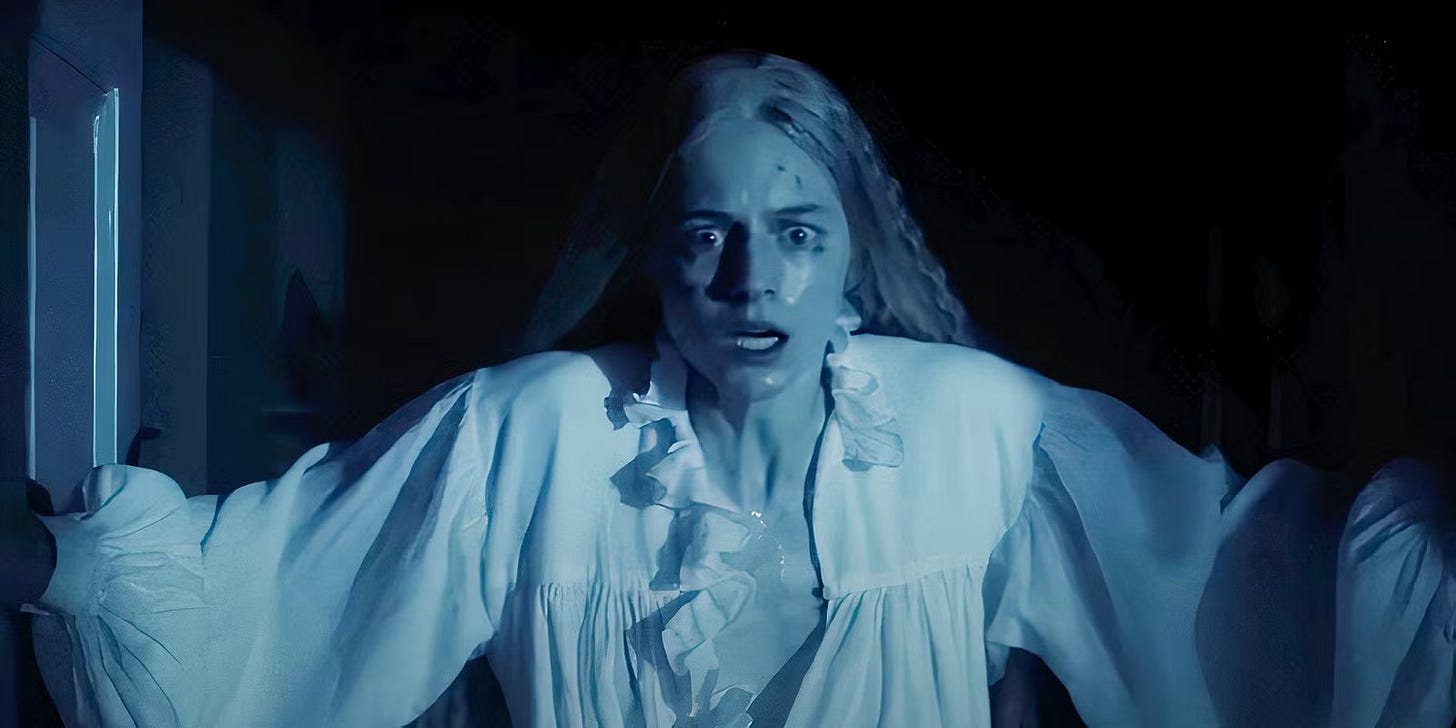Review - Nosferatu
The newest horror film by Robert Eggers, this one looks amazing but it does not nearly feel as good. Not by a long shot.
Happy New Year! This month is filled with new releases so stay tuned for more reviews coming. Also, next Friday the Academy Award nominations will be announced, so if you care about that kind of thing, I’ll break it down in a later post.
For now, watch Nosferatu in theaters. If you don’t like it (as it happened to me) you will at the very least find it to be an interesting watch.
Scared for What: Robert Eggers’ Nosferatu
Production from the United States. Released in 2024.
Complete immersion is increasingly rare in big budget feature films because of an over-reliance on CGI and over-working of the special effects workers, which leads to the horribly rendered worlds of the most recent Marvel films (see: Ant-Man and the Wasp: Quantumania). So when competent filmmakers do get sizable budgets to do what they want, it is always something I will want to see. In the new wave of horror, for example, Jordan Peele is one such filmmaker who took full advantage of the studio system with Nope, a throwback to early Spielberg sci-fi horror with a deceptively intellectual twist. To a lesser extent, Ari Aster with one of the biggest budgets by A24 made Beau is Afraid, who also took full advantage by coloring his many worlds as creatively as he could (including that amazing hybrid animated sequence). For Robert Eggers (who is usually paired with the former two as the new voices of ‘elevated’ horror, immersion is kind of his whole deal.
From his first feature The Witch to The Lighthouse and The Northman, the common thread of his filmmaking style is the eerie and dark atmosphere that enraptures viewers through very meticulous research into what constitutes the mise-en-scène. He knows which kinds of wood, tools, clothes, foods and words the characters he tries to create use, and any element of the supernatural added is meant to add to the immersion he creates through historical accuracy. It is the combination of those two elements that characterize his style. Yet, my problem with him is that it seems like the immersion is not the end itself, not the story or any underlying theme.
Peele and Aster are quite the opposite, as both achieve multiple levels of complexity through their works, with Peele in particular achieving that profundity to an even smarter and deeper level with each passing film (Nope is especially amazing as a treatise on spectacle, discrimination and the history of cinema, if you choose to look between the frames). Eggers’ best work came in his debut as The Witch had more going on through the contradiction between Thomasin, her family and her true calling, but even as subsequent films used the supernatural to inform the storytelling and themes, each yielded less in terms of emotional impact, and that is what stops me from liking his most recent film Nosferatu.
Nosferatu has such a rich history in cinema. The original 1922 version of the film was itself sort of plagiarized from Dracula, the novel by Bram Stoker. The novel (and its official adaptation by Francis Ford Coppola in 1992) are epistolary in nature, and follow multiple characters as they interact with and ultimately seek to understand and destroy Dracula, a former soldier of God who after losing his wife, blasphemously denounced God and became an immortal vampire because of it. Nosferatu (1922) is significantly darker, as the vampire seems to be more like a demon who wants to consume and has no redeeming qualities. So, while Coppola made a far more romantic and classical film in 1992, F.W. Murnau, Werner Herzog and now Robert Eggers made films darker and leaning more into horror.
The story essentially is about Count Orlok (the titular vampire played by Bill Skarsgard), who is obsessed with Ellen Hutter (played by Lily-Rose Depp) and arranges for her husband (Nicholas Hoult) to go to his castle to sign the deed to land, with other intentions to later keep his wife for himself. For Eggers specifically, the thematic focus of the film was maybe one of female lust and shame, as Ellen Hutter is initially lonely and calls out for the demon to please her and give her company, which starts out the film’s chain of events. And during the film, she is gagged, tied and medicated to make sure she is not possessed by the titular vampire. Yet, a deeper reading might suggest that all of this signals the limitation of women in society to live more freely and openly. This all might have worked if Eggers were a better director of actors and if he managed to inject some emotionality into the film’s core instead of solely relying on the production design and atmosphere created by the camerawork and lighting. The technical aspects are, unsurprisingly, great, but it does not resonate enough emotionally or even intellectually. We just got a fancier repetition of a story we know, like a fancier version of a live action Disney remake.
As for the performances, I am a little conflicted on how to feel about them. A lot of the dialogue is a little silly and almost every performer -including Depp who seems to be getting raves across the board for her work- has a moment that I found unintentionally funny. That’s bad for a filmmaker as self-serious as Eggers. Aaron Taylor-Johnson, for example, I found to be truly bad, none of his line deliveries felt attuned to the tone the film was presenting, and Nicholas Hoult, Willem Dafoe and Bill Skarsgard, as well as Depp, each got little moments that felt off. Each was quite good, particularly Skarsgard with what little interiority he was given to play the titular vampire, but it all felt like a miss of direction. The only actor who I felt was flawless -and who made me question if they were better prepared to play Ellen Hutter- was Emma Corrin. They were given very little as Anna Harding, close friend of Emma, yet each moment felt completely in line with what the film was going for, they never overplayed their hand with the character of Anna.
When Coppola made Bram Stoker’s Dracula, the emotional core of the film lay in the four main characters but a lot fell on Dracula’s shoulders, as he was ultimately sympathetic despite being a clear villain. And keeping in line with Coppola’s visual maximalism he who wields with his newest Megalopolis, he found that maximalism there through the layering of frames within frames and using the novel’s epistolary nature to inform how the film conveyed its story. With Nosferatu, that visual creativity is not there, which is not a bad thing. As I wrote before, Eggers is really good at immersion through historically accurate sets combined with supernatural elements, which means that this story would be right up his alley. And visually, it’s all there, not just how he researched his sets, costumes and actions to inform how characters looked and what kind of weapons villagers used, but also in Jarin Blaschke’s camerawork, which was never too dark to signal lazy studio filmmaking (this is not lazy by any means) but rather to leverage the ample use of shadows and sparse sources of light to create terror.
With all that said, none of this matters if an audience is not able to care about the story nor its characters, or if there isn’t any emotional depth to what is happening on screen. Coppola is a director of style, but every frame is so filled with meaning that no one can accuse him of style over substance. For me, the same cannot be said about Eggers. I hope he goes back to making something as good as The Witch (with a bigger scope) or as complex as The Lighthouse (with more emotional resonance). Until then, his work comes down to pretty pictures with little depth.







